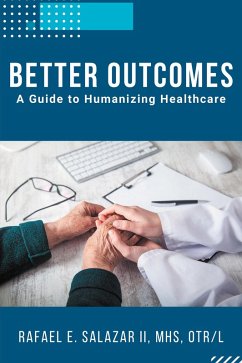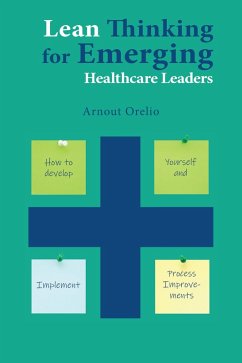We have a problem in healthcare.
That problem is this: in today's healthcare environment, especially in the United States, people take a back seat to the numbers in almost every aspect of healthcare service delivery. Productivity, utilization, and other business metrics rule the roost.
If it's not calculatable, spreadsheet-able, or measurable, it hardly receives any attention from healthcare managers, administrators, and decision-makers.
We can't simply sit back and allow the dehumanization that currently runs rampant in our clinics and hospitals continue to wreak havoc on one of the most important factors in clinical outcomes: the relationships between healthcare professionals and the people (patients) that they serve.
Healthcare is a great and noble profession, but it will only remain so if we, as healthcare professionals, return its focus to its true purpose: people, the people receiving care, and the people working to deliver that care. After all, we're all more than simply numbers on spreadsheets or items on checklists.
Better Outcomes: A Guide for Humanizing Healthcare outlines the 8 changes that organizations and clinicians need to commit to in order to return to the focus of healthcare to where it should be: the patient.
The book covers topics related to truly patient-centered care, a biopsychosocial approach to service delivery, patient engagement, interpersonal communication, and developing long-term relationships with patients.
Through an exploration of both clinical research and real-life examples and cases, the book outlines and supports a vision of a new healthcare, where skilled, competence, and caring clinicians care for engaged patients to promote better clinical outcomes, deliver unmatched satisfaction, and lasting relationships.
That problem is this: in today's healthcare environment, especially in the United States, people take a back seat to the numbers in almost every aspect of healthcare service delivery. Productivity, utilization, and other business metrics rule the roost.
If it's not calculatable, spreadsheet-able, or measurable, it hardly receives any attention from healthcare managers, administrators, and decision-makers.
We can't simply sit back and allow the dehumanization that currently runs rampant in our clinics and hospitals continue to wreak havoc on one of the most important factors in clinical outcomes: the relationships between healthcare professionals and the people (patients) that they serve.
Healthcare is a great and noble profession, but it will only remain so if we, as healthcare professionals, return its focus to its true purpose: people, the people receiving care, and the people working to deliver that care. After all, we're all more than simply numbers on spreadsheets or items on checklists.
Better Outcomes: A Guide for Humanizing Healthcare outlines the 8 changes that organizations and clinicians need to commit to in order to return to the focus of healthcare to where it should be: the patient.
The book covers topics related to truly patient-centered care, a biopsychosocial approach to service delivery, patient engagement, interpersonal communication, and developing long-term relationships with patients.
Through an exploration of both clinical research and real-life examples and cases, the book outlines and supports a vision of a new healthcare, where skilled, competence, and caring clinicians care for engaged patients to promote better clinical outcomes, deliver unmatched satisfaction, and lasting relationships.
Dieser Download kann aus rechtlichen Gründen nur mit Rechnungsadresse in A, D ausgeliefert werden.









